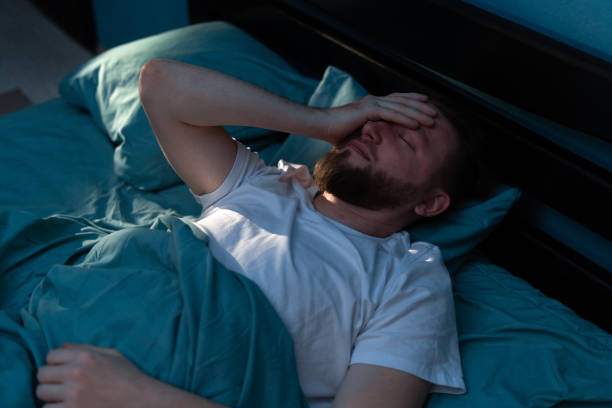Restlessness
Understanding and Managing it with UMEED
Restlessness is an inability to calm down and a persistent state of agitation. These symptoms are frequently accompanied by uneasiness or a sense that something is wrong. They may show up as a need to move, an inability to sit still, or physical fidgeting. At UMEED, we recognize that Restlessness is a typical symptom of depression and that treating it as part of a comprehensive treatment strategy is crucial.
A Deeper Look at Restlessness Psychology
Psychology has shown that underlying mental health issues like anxiety and sadness are frequently associated with Restlessness. These conditions can impair regular brain activity, exacerbating stress and making it challenging to stay calm. At UMEED, our skilled team of psychologists and psychiatrists specializes in determining the underlying causes of Restlessness and developing individualized treatment programs to assist you in finding relief.

Why Are You So Restless at Night?
Many people discover that their nighttime peaks in Restlessness make it difficult for them to get to sleep or stay asleep. There are several reasons for this nocturnal Restlessness, such as hormone abnormalities frequently associated with depression, unresolved stress, and increased anxiety. At UMEED, our professionals can assist you in comprehending these reasons and devise methods to surmount insomnia during the night together.
How to Calm Restlessness?
Calming Restlessness requires a diverse strategy catered to each individual’s needs. At UMEED, we use a variety of therapeutic approaches, such as mindfulness exercises, cognitive-behavioral therapy (CBT), and relaxation methods. We intend to provide valuable tools for efficiently managing and reducing Restlessness.
How to stop Restlessness Immediately?
Even while long-term care is necessary, you can use the following quick fixes to lessen Restlessness:
- Practices for deep breathing
- Gradual onset of muscular relaxation
- Grounding exercises like paying attention to your senses
- Brief periods of physical exertion
- Using guided visualization or meditation

Restlessness Symptoms
Typical signs of Restlessness consist of:
- Difficulty sitting still
- Continuous pacing or fidgeting
- Difficulty focusing
- Intolerance and exasperation
- Sleep disturbances or insomnia
Restlessness Causes
Numerous things might cause Restlessness, especially in those who are depressed. Typical causes include some of the following:
- Stress and anxiety
- Adverse drug reactions
- Imbalances in hormones
- Negative mental habits
- Lifestyle choices like coffee consumption and inactivity
How to Overcome Restlessness at Night
Establishing a calming nighttime routine and taking care of any underlying mental health concerns are essential to overcoming insomnia at night. Suggested actions comprise:
- Keeping a regular sleep schedule
- Establishing a calming bedtime ritual (reading, taking a warm bath, etc.)
- Lowering screen time before bedtime
- Make sure your sleeping space is cozy
- Using relaxation methods like progressive muscle relaxation or deep breathing
Restless Behaviour and its Impacts
Anxious conduct can seriously negatively influence day-to-day living, resulting in lower quality of life generally, strained relationships, and decreased productivity. Our goal at UMEED is to offer you all-encompassing support so you may control and lessen these behaviors and live a more balanced and satisfying life.
Seek Help at UMEED
UMEED is available to assist if you or a loved one is experiencing Restlessness as a symptom of depression. Our devoted group of psychiatrists and psychologists is committed to providing considerate care and efficient treatment plans customized to meet your requirements. Contact us now to arrange a consultation and begin your journey towards conquering Restlessness and recovering your mental tranquility.
